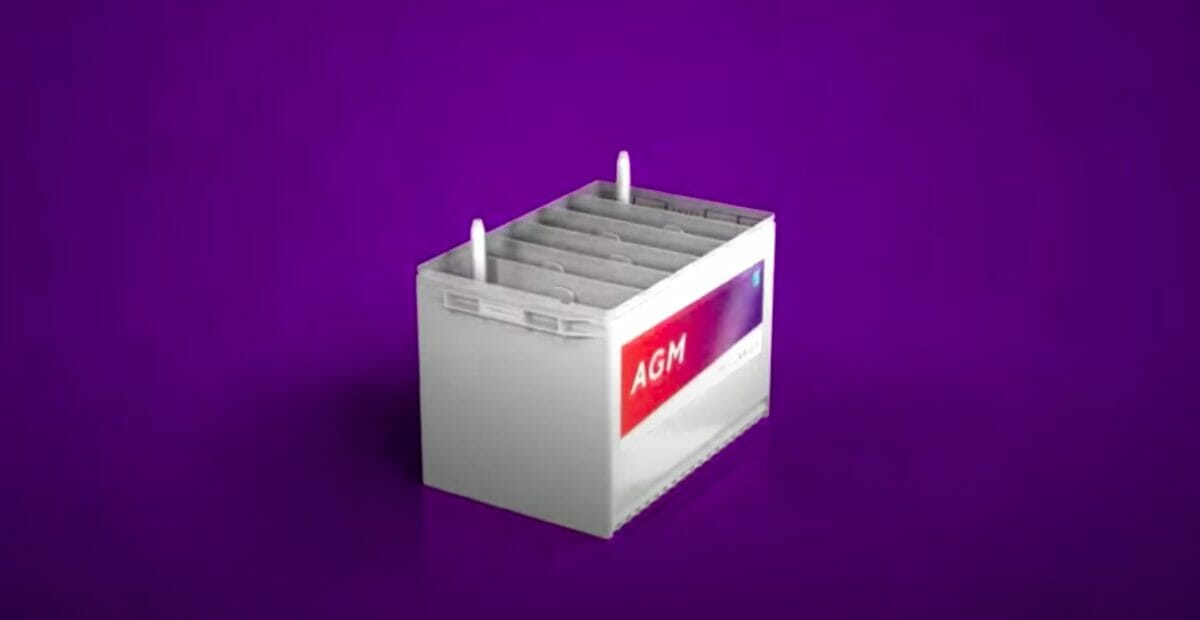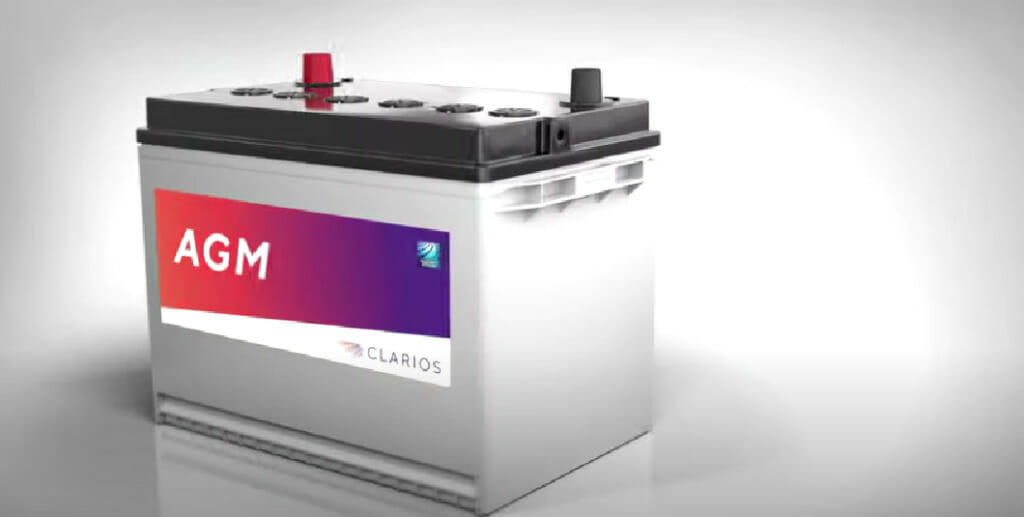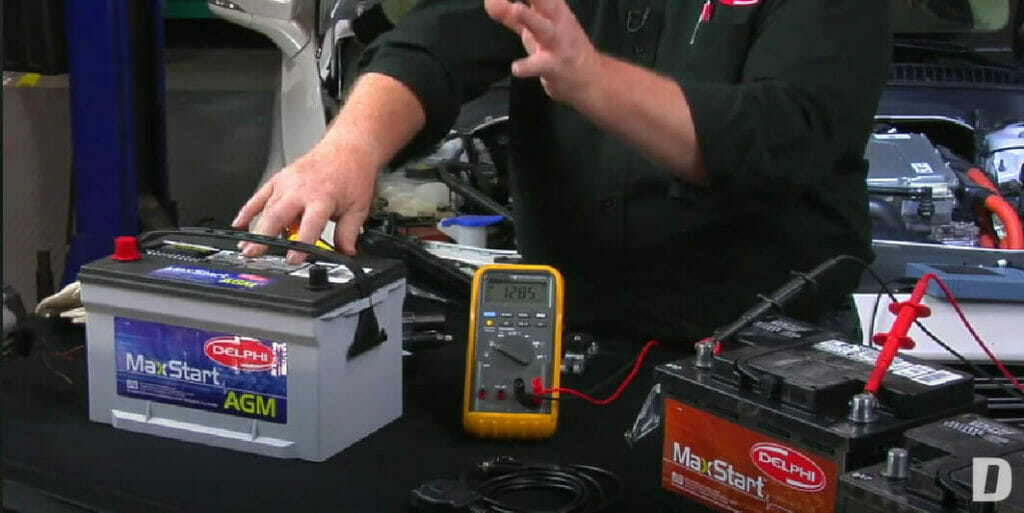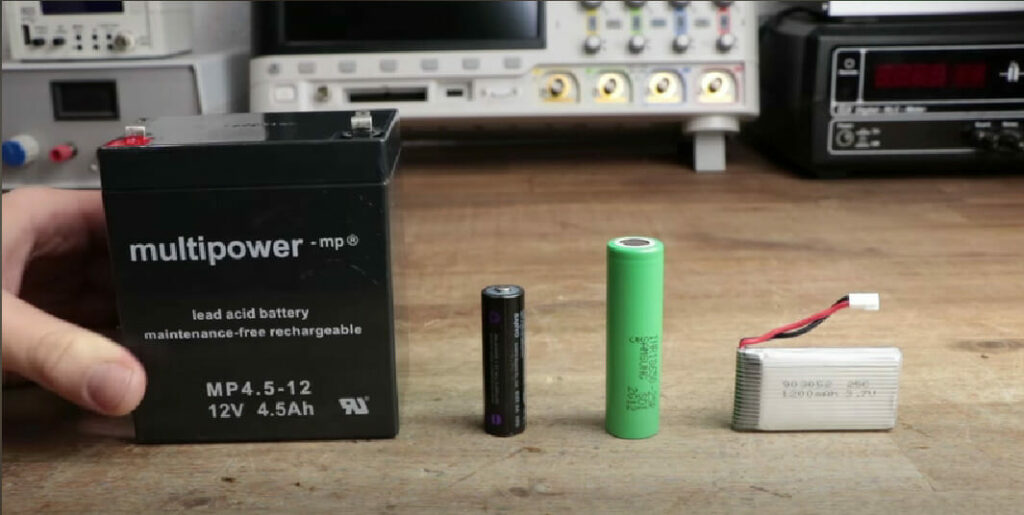How Long Do AGM Batteries Last? (Lifespan Tips)

Curious about how long AGM batteries last? Let me share some of my hands-on experiences with these powerhouses. AGM batteries are my go-to choice in building and renovating for marine, RV, and automotive uses.
I’ve seen that AGM batteries typically have a good run of about 3 to 5 years. But, with some TLC, they can outlive that estimate. Key factors to watch include Operating Temperature, Discharge, and Usage Frequency.
This article will dive into these factors affecting AGM battery lifespan and share some tips for keeping them strong. Trust me, a little maintenance can go a long way in extending the life of your AGM battery
AGM Batteries Lifespan

In my experience, AGM batteries are like the unsung heroes of the battery world. They’re tough and reliable, and if you treat them right, they can stick around for 3 to 5 years, sometimes even longer.
It all comes down to how you treat them. You know, kind of like how a well-maintained tool can last for ages.
What Affects Their Lifespan?

Several factors can either make or break your AGM battery’s life. Let’s break it down:
- Operating Temperature: These batteries are a bit like ours; they prefer not to be too hot or cold. Extreme temperatures can shorten their lifespan. I remember keeping my boat’s AGM battery in a cool, shaded spot; it makes a difference.
- Depth of Discharge: This is all about how much juice you use before recharging. I’ve learned it’s like running a marathon – you don’t want to push it too hard too often. Keeping the discharge shallow helps a lot.
- Usage Frequency: How often you use and charge your battery plays a big part, too. It’s like taking your car out for a spin; regular use keeps it running smoothly.
Expected Lifespan of AGM Batteries for Different Usage Scenarios
Let’s now dive into their lifespan, speaking from my own experiences in building and renovating! AGM batteries are a real game changer in various settings, and I’ve seen them in action in multiple projects.
| Usage Scenario | Expected Lifespan (Years) |
|---|---|
| Marine | 3-5 |
| RV | 3-7 |
| Solar | 5-10 |
| Backup Power | 4-8 |
When we’re talking marine use, these batteries typically last about 3 to 5 years. They’re resilient, but the constant exposure to elements does take a toll.
AGM batteries can power your journey for around 3 to 7 years for RV enthusiasts, including a few of my adventurous friends. I’ve been part of some epic road trips, and these batteries have been reliable companions, powering everything from lights to mini-fridges.
In solar setups, which I find fascinating and eco-friendly, AGM batteries shine the brightest, lasting about 5 to 10 years. I’ve helped install solar panels on homes, and the longevity of these batteries in storing solar power is impressive.
Lastly, you can expect these batteries to last between 4 and 8 years in backup power scenarios, like home emergency systems. I’ve installed backup systems in homes, especially in areas prone to power outages, and AGM batteries have been a solid choice for reliability.
Remember, these are ballpark figures based on my experiences and observations. The lifespan can vary depending on how you use and maintain these batteries. Regular checks and proper care can help in extending their life.
Tips for Extending the Life of Your AGM Battery
Now, if you want to get the most out of your AGM battery, here are a few tips from my adventures:
- Keep It Cool: Keep your battery out of extreme heat or cold. It’s like finding the perfect spot in your garage where it’s not too hot or cold.
- Regular Charging: Keep your battery charged, but don’t overdo it. It’s like watering a plant – enough to keep it thriving, but not so much that you drown it.
- Monitor Depth of Discharge: Avoid deep discharges. Think of it as pacing yourself in a long race.
- Balance Your Loads: It’s crucial to balance the electrical load on your AGM battery. Overloading it is a surefire way to cut its life short. Think of it as not overburdening your trusty toolbox.
- Clean Connections: Keeping your battery’s terminals clean ensures efficient energy flow and prolongs its life.
- Ventilation is Key: Your AGM battery needs good air circulation. It helps regulate temperature and prevents overheating.
Comparison of AGM Batteries to Other Types
Let’s break down the different battery types I’ve encountered in my adventures in building and renovating, focusing on how AGM batteries stack up against the rest.

- Traditional lead-acid batteries. I’ve seen these guys around a lot, especially in budget-friendly projects. They don’t break the bank, but they don’t stick around for too long, either. Typically, you’re looking at a lifespan of 2 to 5 years. However, I’ve noticed they handle deep discharges like champs, making them a solid pick for projects that need that kind of robustness.
- Then there are lithium-ion batteries. These are the sleek, high-tech ones. I’ve used them in modern, tech-heavy projects. They pack a lot of punch for their size and can last up to 7 years, which is pretty impressive. Their lightweight and high energy density makes them perfect for gadgets, laptops, and smartphones.
- Now, let’s talk about Nickel-metal hydride (NiMH) batteries. These are the eco-friendlier options I’ve encountered in some green projects. They last around 2 to 3 years, not as long as AGM, but they have a smaller environmental footprint, which is a big win in my book.
Comparing all these with AGM batteries, I’ve found AGMs have a longer lifespan than lead-acid and NiMH batteries. However, they sometimes fall short of the longevity of lithium-ion batteries. In my experience, AGM batteries are a great middle-ground – reliable, durable, and with a decent lifespan.
Signs of Dying AGM Battery
Let’s discuss the telltale signs of an AGM battery waving the white flag. Knowing these signs is crucial in building and renovating because a failing battery can throw a wrench in any project.
- Slow Cranking: When I’m working on a vehicle or a project that involves an engine, and it starts dragging its feet to get going, it’s often a sign that the AGM battery is on its last legs.
- Dim Headlights: I’ve been on sites where the lights look more like a candle than a beacon. That’s usually a clear signal that the AGM battery is not pumping out the juice like it used to.
- Electrical Issues: Flickering lights and a radio that’s more off than on can all point to a battery that is about ready to check out.
- Swollen Battery Case: This one’s pretty straightforward – if your AGM battery looks swollen, that’s a big no-no. It can mean there’s an internal short circuit, and trust me, you don’t want to mess around with that.
Keeping an eye out for these signs has saved me from many potential project headaches. A dying battery can throw a spanner in the works, so catching these symptoms early means you can swap it out before it throws everything off track.
Frequently Asked Questions
- Are AGM Batteries Good for Cold Weather?
- Oh, absolutely! AGM batteries are like those all-weather coats – they perform well in cold conditions. Their low internal resistance helps them get going even when it’s chilly.
- Can AGM Batteries Be Used for Solar Power Systems?
- Yes, they can! AGM batteries are great for solar setups. Their durability and maintenance-free nature make them ideal for storing that sunny day power.
- How Do AGM Batteries Impact the Environment?
- AGM batteries are more eco-friendly than their flooded counterparts. They’re sealed, meaning less risk of acid spills, and they’re also recyclable. It’s like choosing eco-paint for your home – better for the planet.
- What Makes AGM Batteries Different from Gel Batteries?
- AGM and Gel batteries may seem similar but differ under the hood. AGM batteries can handle higher power demands and charge faster than Gel batteries. It’s like comparing a standard screwdriver to a power drill – both have their place, but one packs more punch.
- Are AGM Batteries Safe to Use Indoors?
- Yes, they are! AGM batteries are sealed, which makes them safe to use indoors – no worries about leaks or fumes. It’s like having a reliable indoor heater that you know won’t give off dangerous gases.
References
Organizations:
- Battery Council International (BCI). https://batterycouncil.org/
- The Electrochemical Society. https://www.electrochem.org/
Books:
- “Handbook of Batteries” by David Linden and Thomas Reddy. https://books.google.com/books/about/Handbook_of_Batteries.html?id=XquySsZp5jsC
Website Resources:
- Battery University. https://batteryuniversity.com/
- The Renewable Energy Hub. https://www.renewableenergyhub.co.uk/
Video References:
The Battery Shop
Delphi Technologies
GreatScott!
